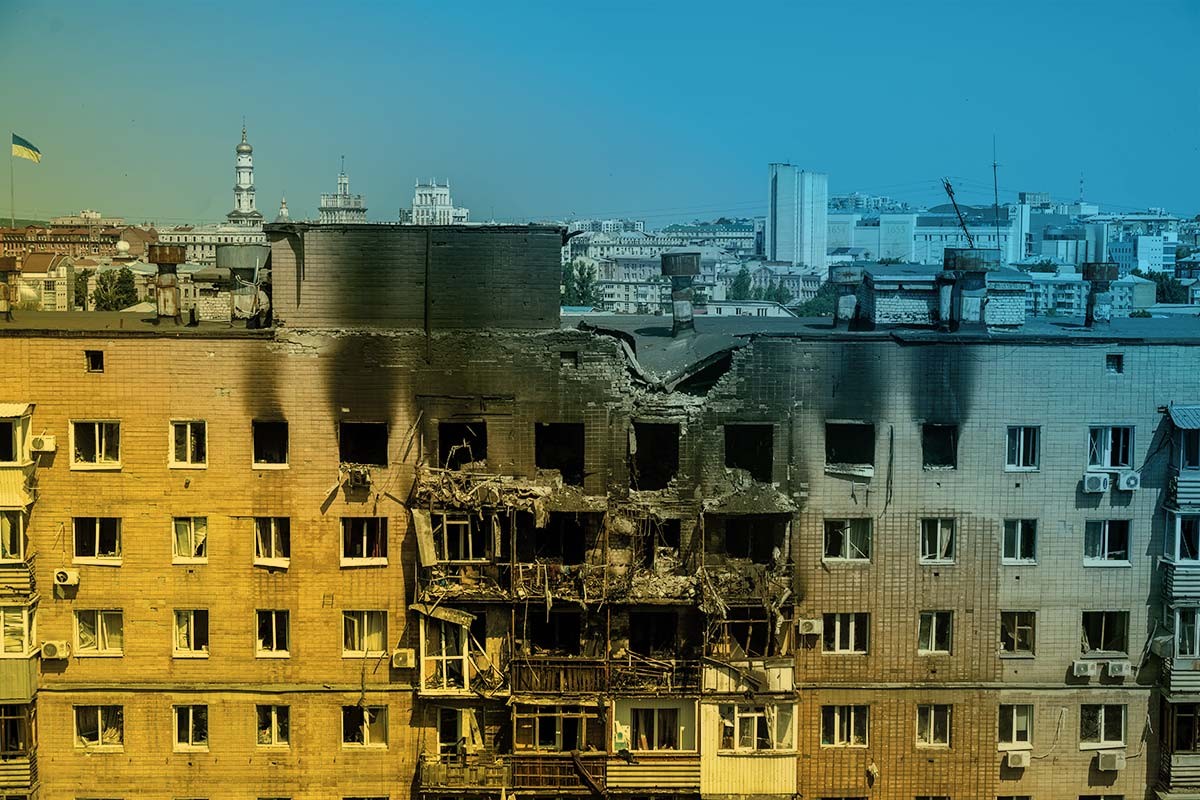Israel: How much is Netanyahu in control?

Despite indisputable opinion polls and massive protests, Prime Minister Benjamin Netanyahu remains in office. Richard C. Schneider discusses the exhaustion of the Israeli people, possible scenarios for the end of the governing coalition — and why Netanyahu is playing for time.
What is going on in Israel? For months, opinion polls have been saying the same thing: more than 70% of Israelis want to get rid of their prime minister, Benjamin Netanyahu. For months, the international media have been writing about the end of “Bibi,” as Netanyahu is known. And for months, Israelis have been demonstrating against Netanyahu. What has happened so far: Nothing.
Why can’t the Israelis Society get rid of their hated Prime Minister?
Currently, observers — at least those who have no real knowledge of Israel — are pinning their hopes on Netanyahu’s imminent downfall, not least because Benny Gantz, together with his party colleagues and ex-Chief of General Staff Gadi Eisenkot, has already left. Yet Netanyahu remains in the prime minister’s office, just as before, and plans an “all-out war” against Hezbollah in the north. Why can’t Israeli society get rid of its hated prime minister?
The answer is multifaceted — but it’s not that complicated. Several factors have led to the paralysis of the population in the face of Netanyahu’s claims to power.
On the one hand, there is the total exhaustion of the Israeli people. Their struggle did not just begin with the Hamas massacre on October 7. It began on January 4, 2023, when Justice Minister Yariv Levin revealed his plans for an illiberal justice reform, which would abolish the division of powers in democratic Israel. Since then, the Israeli population has been in a permanent state of emergency, alongside the followers of Netanyahu as well as his opponents.
Greatest Domestic Political Crisis in Israel’s History
The demonstrations — but more so the division of society that has played havoc with the Zionist consensus — have cost the people “blood, sweat and tears,” to paraphrase Churchill. Week after week, Israelis took to the streets to protest against the judicial reform. Advocates of the reform have also been stirred into action and are fighting for their vision of a new Israel. The hatred for each other grew, the economy began to weaken, volunteer reservists were unwilling to report for duty — and Israel found itself in the greatest domestic political crisis in its history.
The People of Israel are Exhausted
Then came the massacre, which reactivated the trauma of the pogroms and the Holocaust. And then the war, which has now been going on for eight and a half months and seems to have no end in sight. To put it neutrally, the Israelis have hardly any “capacity” left for an effective uprising against their prime minister.
Consensus among the Ruling Coalition
Without question, Bibi’s Likud, the far-right ministers Itamar Ben Gvir and Bezalel Smotrich, and the ultra-Orthodox parties, are all basically enemies. They don’t like each other, and they don’t trust each other. But they need each other. They all realise that as long as they are in power, even with their detested partners, they are sitting at the flesh-pots of the state. Not only can they elicit the financial resources they need to achieve their purposes and goals, but they can also gradually reshape the state according to their vision.
The repeated threats by the Minister for National Security Ben Gvir to destroy the coalition if Netanyahu doesn’t do what he wants should not be taken too seriously. These strategies are more akin to psychological warfare since even Ben Gvir knows that if he pulled out of the coalition, he would no doubt be sitting on the opposition bench for a long time. And those benches are known to be hard and uncomfortable.
Threat as the Great Common Denominator
Even though this government is detested, the war continues to rage. Ultimately, there is a majority that is not only convinced that the Islamist Hamas must be destroyed, but also believes that this is possible. What’s more, the consensus that the situation in the north must be fundamentally changed is rock solid. Shiite Hezbollah in Lebanon and the Israeli army have been fighting each other since the outbreak of the Gaza war. Since the beginning of this war, around 80,000 people in northern Israel have been evacuated from their towns and villages and are still unable to return because Hezbollah’s drones, rockets, shells, and rocket-propelled grenades are gradually destroying their homes.
They want to go back, but to secure homes. And they know there are scarcely any viable options other than an escalation of the war with Hezbollah — even at the risk of destroying a significant portion of Israeli infrastructure and killing many Israeli civilians. The population knows this price must be paid sooner or later, so why not now?
At what Point would Netanyahu have to Resign?
In light of all of the above, it is unlikely that Netanyahu will be forced to resign from office. Currently, there are only two conceivable sequences of events that could bring this about.
One possibility is through the efforts of the Israeli people. Not ten thousand of them, as has been the case until now, and not one hundred thousand as was the case before October 7. One or two million Israelis would have to take to the streets to demand the end of Netanyahu’s premiership. They must bring the country to its knees, ideally with a trade union-backed general strike. This effort should not be limited to one day but should continue day after day until Netanyahu is forced to resign because the country has become ungovernable. The Israelis are too worn out; they have their sons, brothers, and fathers in the army and worry about them more than about the government.
Controversial Law exempting the Ultra-Orthodox Men from Military Service
The second possibility is a failure of the new law regarding the exemption of the ultra-Orthodox from military service. This law should soon be passed despite signs that not everyone in the government is willing to support it. In the first ballot, Defense Minister Yoav Gallant voted against it, and there are now other politicians in Likud who do not support the law. In these times, making concessions to the ultra-Orthodox once again is hard for Israeli society to accept, given the sacrifices that every Israeli family currently has to make. Furthermore, a new regulation provides for the extension of military service in all areas.
So while the prospect of an ever-increasing burden weighs heavily on the bulk of Israelis, the ultra-Orthodox, the Haredim, are once more to be spared? That would be hard to swallow. It is quite conceivable that the coalition could be shattered by this law, even though Netanyahu will try everything to reach some kind of lazy, last-minute compromise in order to keep his government together. At present, however, it looks as if the coalition is actually facing a crucial test. On June 25, the Supreme Court ruled that, on the grounds of equality, the government must call up young ultra-Orthodox men for military service, effective immediately. Additionally, the yeshivas, the religious educational institutions, should no longer receive governmental financial support as their students “play truant” from military service.
Netanyahu is playing for time
In any case, Netanyahu will attempt to salvage himself during the summer holiday, which begins at the end of July. The Knesset will not meet again for another three months. What will transpire until then, only the gods know. It’s possible that Israel could already be caught up in an all-out war with Hezbollah. The Israelis would then have completely different problems. Such a war, which appears to be gradually becoming inevitable, would mean a level of destruction that even war-hardened Israelis could not imagine. And Netanyahu, if he were to win the war, would have a chance to be re-elected as a war hero. Israeli politics really can be that crazy. So it should come as no surprise if Bibi does indeed rely on this option to consolidate his power once again. But the price — for the Israeli population — would be extremely high.
.
![]()
Hat Ihnen unser Beitrag gefallen? Dann spenden Sie doch einfach und bequem über unser Spendentool. Sie unterstützen damit die publizistische Arbeit von LibMod.
Wir sind als gemeinnützig anerkannt, entsprechend sind Spenden steuerlich absetzbar. Für eine Spendenbescheinigung (nötig bei einem Betrag über 200 EUR), senden Sie Ihre Adressdaten bitte an finanzen@libmod.de
Verwandte Themen
Newsletter bestellen
Mit dem LibMod-Newsletter erhalten Sie regelmäßig Neuigkeiten zu unseren Themen in Ihr Postfach.





